
Emiliano Monge (born 6 January 1978) is a Mexican short story writer and novelist. Three of his novels, The Arid Sky, Among the Lost and What goes unsaid have been translated into English.

Emiliano Monge (born 6 January 1978) is a Mexican short story writer and novelist. Three of his novels, The Arid Sky, Among the Lost and What goes unsaid have been translated into English.
Born in Mexico City on 6 January 1978, Emiliano Monge studied political science at the National Autonomous University of Mexico, and taught there as a professor. [1] [2] He moved to Barcelona and embarked on a career as a writer. His short story collection Arrastrar esa sombra was a finalist for the 2008 Prix Antonin-Artaud, and his novel Morirse de memoria was a finalist for the same award in 2010, winning Monge the Jaén Prize for novels. [3] His works have also been published in La Jornada , Letras Libres and the Hoja por Hoja book review of Reforma . [2]
Mexican novelist Álvaro Enrigue commented on Monge's El cielo árido (2012), and placed him in the group of "Mexico's new writers" (Enrigue sees a watershed in Felipe Calderón start in 2006 of the Mexican Drug War) who are less inclined to employ allegory, and who
are much more open in the way they represent the world they inherited... Monge published an extraordinary novel last year, El cielo árido (The barren sky), in which the chaos that violence brings to people's lives is rendered by a desperate narrative device: as the plot moves forward, the narrator changes the names of the characters because nothing is what it seems. [4]
El cielo árido was translated into English by Thomas Bunstead and published by Restless Books; the main character is "a ruthless outlaw turned even more ruthless head of a small state ministry". [5] It received positive reviews in the English press, with one critic praising his prose as "crisp" and commenting on "his nonlinear narration [which] creates a heightened sense of unpredictability". [6] Mark Athitakis, writing for the Los Angeles Times , called it a "stellar English-language debut". [7]
The book was translated in other languages, including Dutch. Geurt Frantzen, for Literair Nederland, commented on the "exuberance" that he says characterizes much Latin-American writing, but noted that Monge's style is quite distinct and has a 19th-century flavor to it. The narrator/author is very much present and, according to Frantzen, seems anxious to actually break into the story, announcing upcoming events; Frantzen also comments on the main character's development, from a ruthless killer to someone who almost chooses a less violent family life. [8] Maarten Steenmeijer, in de Volkskrant , writes that Monge seems to proudly lean on the Latin-American tradition (in "themes, settings, and style") that Roberto Bolaño and others rejected, but without falling back into magical realism. Steenmeijer sees comparisons with two Mexican classics, Juan Rulfo's Pedro Páramo and Carlos Fuentes's The Death of Artemio Cruz , but that Monge's debut is "magisterial": "Praise to the author, praise to the translators. The Arid Sky is a great Latin-American novel, even in Dutch". [9]
Monge's 2018 novel Among the Lost is a love story between two human traffickers set in the jungles and wastelands of the Mexican–US border area. The Guardian said "Monge balances the dour, apocalyptic brutality of Cormac McCarthy with lively, grim humour – evident in the exasperated exchanges – all of which makes the stark truths driving this flamboyant narrative a little easier to swallow". [10] When asked in an interview with TLS about writing as a political act, he answered, "They are inseparable. It has nothing to do with the themes or the characters, but the language. It is inalienable. When sitting before the blank page, the only certainty that must be had is to write in a language different from the language of power. This for me is also fundamental". [11] The novel was awarded the Elena Poniatowska Iberoamerican Novel Prize in 2016 by the Mexico City government. [12]
In 2018, Monge released No contar todo (Not Telling Everything), his first nonfiction title. [13] The book tells three autobiographical tales, interwoven to explore the generational acculturation towards "male violence". [14] One focuses on his grandfather, Carlos Monge Mckey, who faked his own death after blowing up a quarry owned by his brother-in-law. Another relates his family's rules for protection when home alone, as a response to the violent era of Monge's childhood. The final story is about his father, Carlos Monge Sánchez, who fought as a guerrilla soldier alongside Genaro Vázquez Rojas. [13] El País described the book as "a journey through the torments of a country—already overdiagnosed in multiple essays—but that cries out for the humanization of its daily realities". [13] El Cultural hailed Monge's "realistic creation of three distinct voices, an achievement that is ever more rare in contemporary narrative". [14]

The Tlatelolco massacre was a military massacre committed by the Mexican Armed Forces against the students of the National Autonomous University of Mexico (UNAM), the National Polytechnic Institute (IPN), and other universities in Mexico.
Frank Wynne is an Irish literary translator and writer.

Amado Carrillo Fuentes was a Mexican drug lord. He seized control of the Juárez Cartel after assassinating his boss Rafael Aguilar Guajardo. Amado Carrillo became known as "El Señor de Los Cielos", because of the large fleet of jets he used to transport drugs. He was also known for laundering money via Colombia, to finance this fleet.
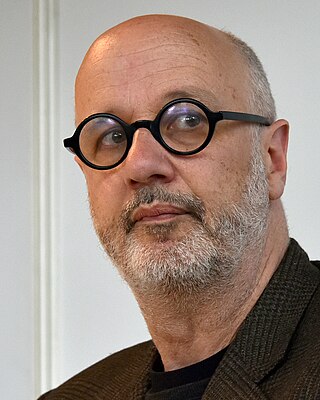
Rodrigo Fresán is a fiction writer and journalist. Since 1999, Fresán has lived and worked in Barcelona, Spain. His books have been translated into many languages.

Alonso Cueto Caballero is a Peruvian author, university professor and newspaper columnist.
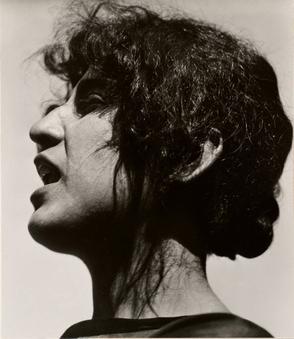
Guadalupe "Lupe" Marín, born María Guadalupe Marín Preciado, was a Mexican model and novelist.

Alberto Ruy-Sánchez Lacy is a Mexican writer and editor born in Mexico City on 7 December 1951. He is an author of fiction, non-fiction and poetry. Since 1988 he has been the chief editor and founding publisher of Latin America's leading arts magazine, Artes de Mexico. He has been a visiting professor at several universities including Stanford, Middlebury and La Sorbonne, and has been invited to give lectures in Europe, Africa, Asia, North America and South America. His work has been praised by Octavio Paz, Juan Rulfo, Severo Sarduy, Alberto Manguel and Claude Michel Cluny and has received awards from several international institutions.

Fabrizio Mejía Madrid is a Mexican writer and journalist from Mexico City.
Martín Solares is a Mexican writer, critic and editor who received the Efraín Huerta National Literary Award in 1998 for his short story, "El planeta Cloralex". The 2008 Pulitzer Prize for Fiction laureate, Junot Díaz, praises his work as "brilliant, but mostly unavailable in English".
Leonardo Daniel is a Mexican actor and director. His real name is Leonardo Daniel López de Rodas García.

Susana Harp Iturribarria is a Mexican singer and politician. She currently serves as a senator representing the state of Oaxaca.

El Señor de los Cielos is an American crime drama television series created by Luis Zelkowicz, based on an original idea by Mariano Calasso, and Andrés López. It premiered on Telemundo on 15 April 2013. The series is based on the life and work of Amado Carrillo Fuentes, the former leader of the Juárez Cartel. It stars Rafael Amaya as the titular character, Aurelio Casillas.
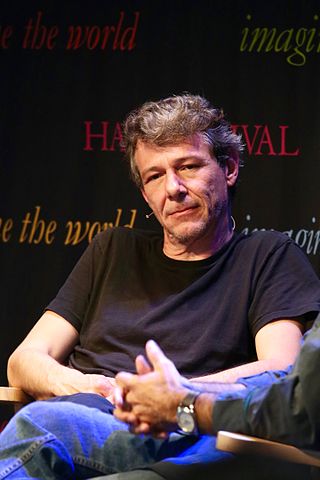
Álvaro Enrigue is a Mexican novelist, short-story writer, and essayist. Enrigue is the author of six novels, three books of short stories, and one book of essays.

Mónica Lavín is a Mexican author of eleven novels, various books of nonfiction, and thirteen short story collections, notable among them Ruby Tuesday no ha muerto ; Uno no sabe ; and her most recent collection, La corredora de Cuemanco y el aficionado a Schubert. In addition, she was awarded the Elena Poniatowska Ibero-American Novel Prize for her work Yo, la peor (2010). Her novel Cuando te hablen de amor (2017) was a finalist for the 2019 Mario Vargas Llosa Biennial Prize for the Novel. She is a member of the Sistema Nacional de Creadores (FONCA), was a teacher for the SOGEM Writers’ School, and was a professor in the Creative Writing Department of the Universidad Autónoma de la Ciudad de México in México City from 2000 to 2024.
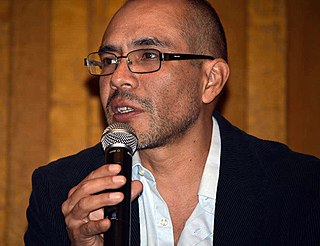
Yuri Herrera is a Mexican political scientist, editor, and contemporary writer. He currently teaches at Tulane University in New Orleans.
Roland Rugero is a Burundian author, journalist, and director. His second work Baho! is the first Burundian novel to be translated to English. His work on promoting Burundian culture has led him to be recognized internationally in such programs as the University of Iowa's International Writing Program.

Anagrama is a Spanish publisher founded in 1969 by Jorge Herralde, later sold to the Italian publisher Feltrinelli.
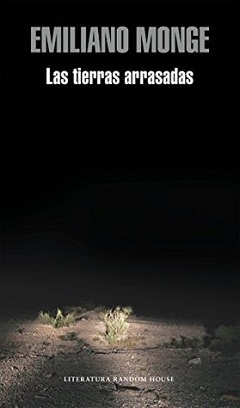
Among the Lost is a 2015 novel by Mexican author Emiliano Monge.

María José Ferrada is a journalist and writer from Chile. She has written numerous books for children and young adults in the Spanish language, and her work has been widely translated. She has received multiple awards for her work, including the Premio Academia of the Academia Chilena de la Lengua, and the Literary Prize of the City of Santiago, and her books for children have been published in several countries, including Spain, Argentina, Colombia, Brazil, Mexico, Italy and the United States, in addition to Chile. She is currently the editor of Chile para Niños, which is the National Library of Chile's digital resource center for children.
Hulde aan de schrijver, hulde aan de vertalers. De rauwe hemel is een grote Latijns-Amerikaanse roman, ook in het Nederlands